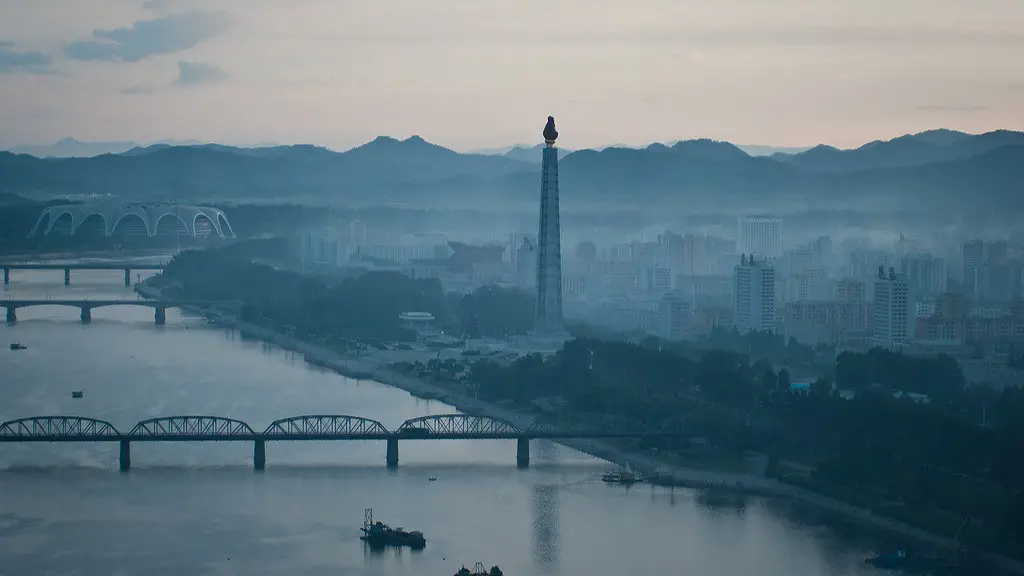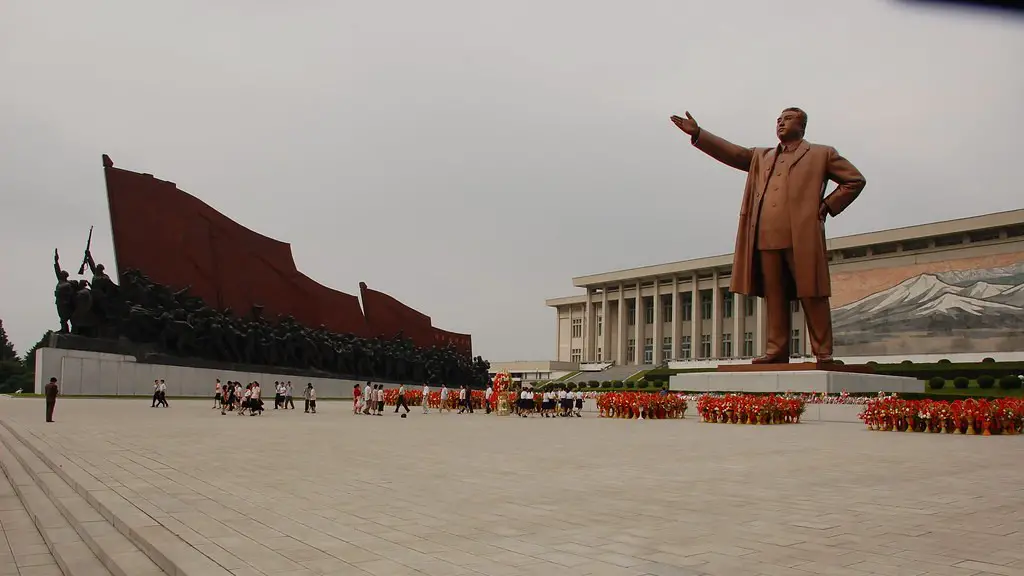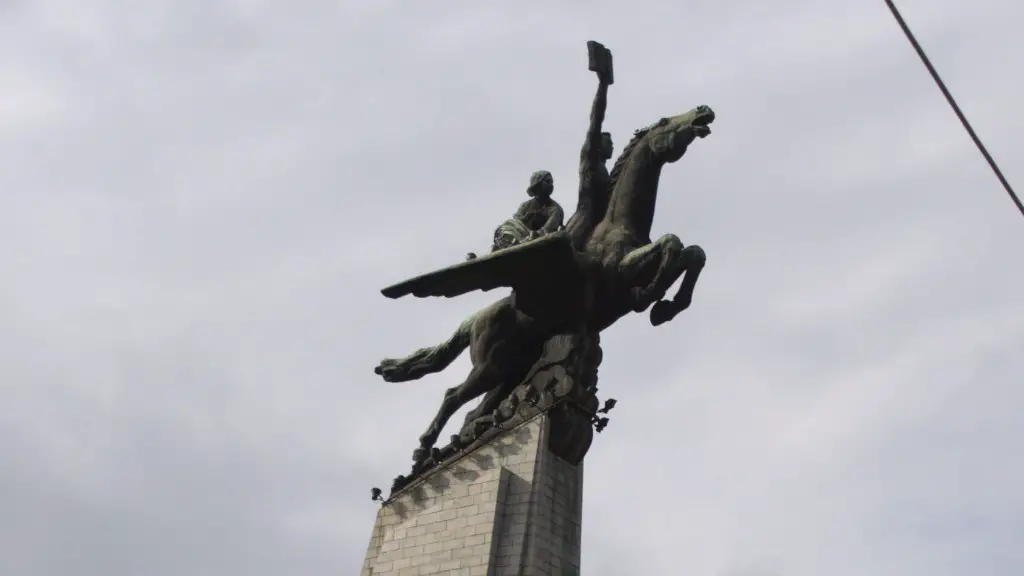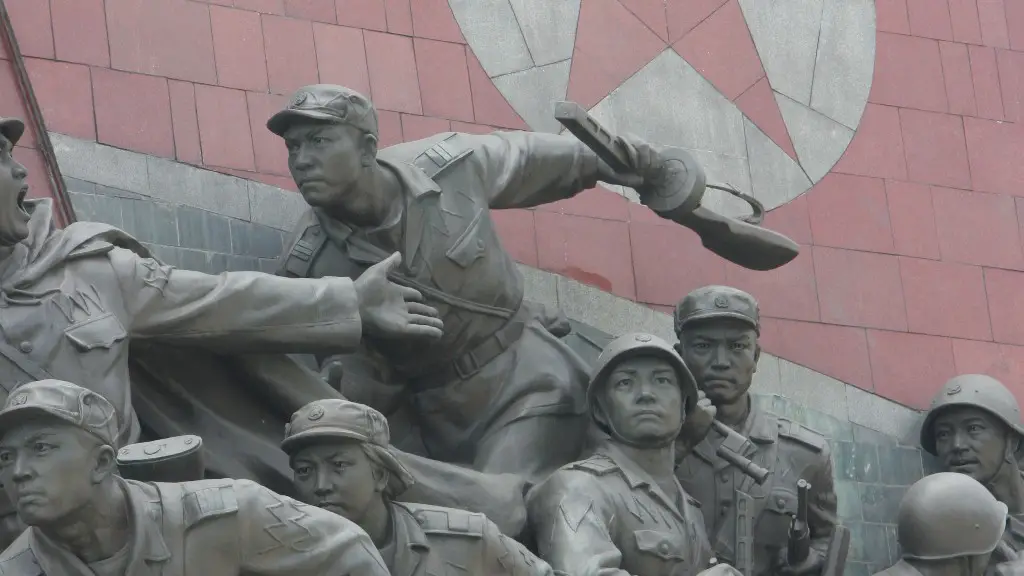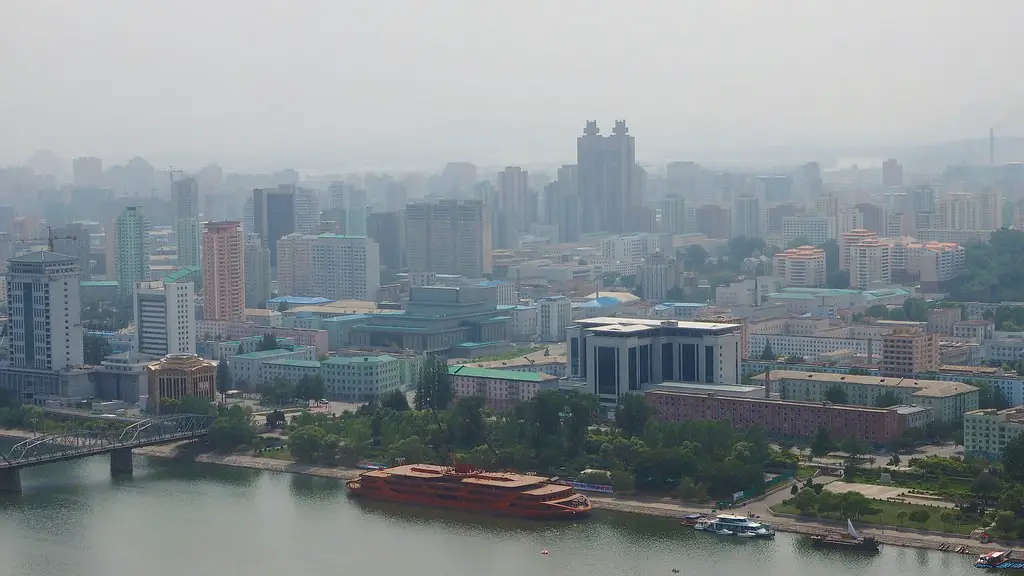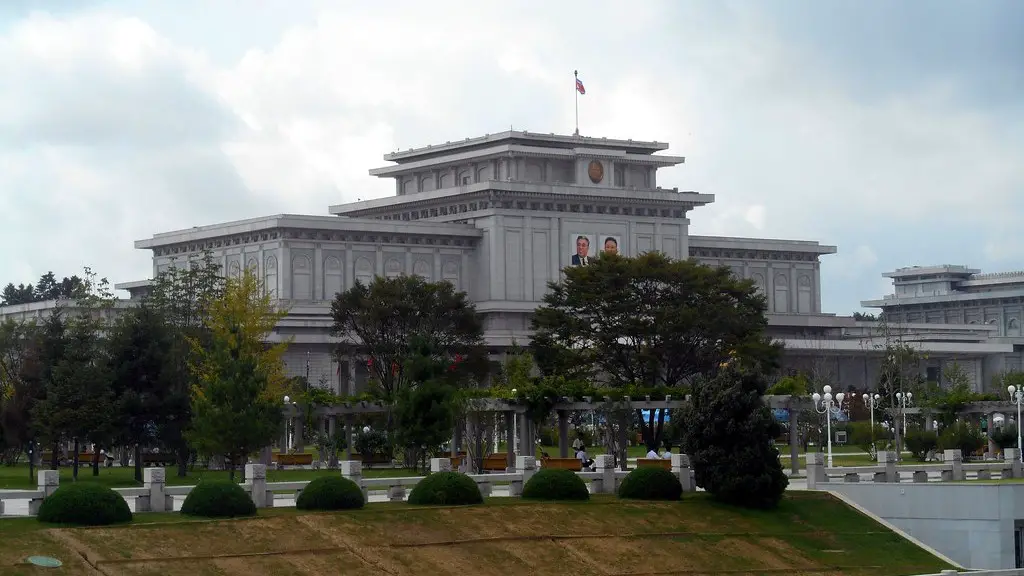The impact of a North Korean invasion of South Korea would cause catastrophic damage worldwide, potentially sparking a global conflict. North Korea, an authoritarian regime led by Kim Jong Un, has a history of provocation and aggression. In 2006, the rogue state conducted its first ever nuclear test, leading the UN to impose harsh economic sanctions and other restrictions. Despite overwhelming international opposition, North Korea has repeatedly defied global opinion and continued to escalate tensions between itself and its enemies.
At present, the most likely path to war between the two Koreas is through a surprise attack. North Korea possesses a substantial arsenal of conventional weaponry and claims to possess both nuclear and chemical arms. Such a surprise attack on South Korea could have devastating effects on national security, as South Korea and its allies may be unable to respond quickly enough to repel the foreign force.
Economic costs associated with a North Korean invasion are impossible to assess accurately. South Korea’s economy is heavily reliant on foreign trade, with the country’s major trading partners including China, Japan, and the United States. Any disruption to this delicate web of economic relationships could have severe international ramifications. Moreover, the regional economy would suffer heavily from the vast amount of infrastructure damage likely to result from an invasion.
On the political front, a North Korean invasion would generate tremendous polarization within South Korea. In the wake of such an attack, South Korean society would be placed on a war footing and already-tense relations between North and South Koreans would only become even more threatening. As a result, the international community would be placed in a delicate situation as it seeks to find an appropriate course of action which avoids further escalating the crisis.
Aside from the political, economic and security implications, a North Korean invasion of South Korea would have devastating humanitarian consequences. A sizeable portion of the two Koreas’ populations would be affected directly by conflict, while the knock-on effects of a prolonged war would ripple across the peninsula. In addition, millions of refugees would be displaced, creating a massive strain on South Korea and its neighbors.
Experts have warned that any North Korean invasion of South Korea would cause untold suffering and chaos. Looking at the North Korean situation holistically, the international community must do all it can to bring tensions between the two countries to a peaceful resolution. To this end, a combination of diplomacy, economic sanctions and regional security guarantees should be implemented to ease tensions and prevent war breaking out between the two nations.
The Impact of Military Conflict
An invasion of South Korea by North Korea would undoubtedly result in a long and bloody war. It is highly likely that the international community would be forced to intervene in order to prevent Pyongyang forces from overrunning the south. This could mean a major military commitment from the United States and other Western powers, a responsibility which would take considerable resources and manpower.
In terms of weapons, North Korea’s military is equipped with both conventional arms and a growing arsenal of nuclear and chemical weapons. This would make the conflict a difficult one, as a massive counter-attack against an enemy armed with such armaments would prove disastrous for both South Korea and its allies. In addition, North Korean forces can seize upon strategically advantageous areas such as the Demilitarized Zone, making such a conflict as difficult and costly as possible.
In terms of the tactical advantage, North Korea would have the upper hand due to its superior conventional weaponry and its geographical position. This could make defending against a North Korean invasion even more difficult for South Korea and its allies, who would have to act swiftly and decisively to prevent the country from falling into enemy hands. This could lead to serious diplomatic and economic implications, as a prolonged military conflict between the two Koreas would be costly in terms of resources and manpower.
Finally, given the volatile situation in the Korean Peninsula, it is clear that any unexpected move by either side could spark a war. If violence were to break out, the effect it could have on the region and the world would be immense. Along with the human cost, the economic impact on both North and South Korea, and beyond, would be massive.
The Impact on Regional Security
The security implications of a North Korean invasion go far beyond the two Koreas. In the short term, there would be a risk of nuclear escalation in the region, as the chances of a confrontation between North and South Korea could escalate quickly. Moreover, should war break out, there is a risk of further nuclear proliferation, as states such as China, Japan and the United States could become involved in the conflict. In the worst-case scenario, this could lead to a nuclear exchange, with devastating effects for the region and the world.
Furthermore, should war come to the Korean peninsula, other states could become involved. China and Japan are key regional powers, and their involvement in the conflict could have unpredictable consequences. Similarly, North Korea’s allies, such as Russia and Iran, could also be drawn into the conflict, with all the attendant risks that would raise. In addition, South Korea’s ally the United States would be forced to respond to the situation, either to counter North Korea’s aggression or to intervene directly in the conflict.
It is clear that a North Korean invasion of South Korea would have profound implications for regional security. It would likely be met by a swift and determined response from the international community, yet the complexity of the situation means that there is no easy course of action that could bring an end to the conflict. Therefore, the risk of an escalation to full-scale hostilities remains a very real possibility.
The Implications for Global Politics
The political ramifications of a full-scale war between North and South Korea would no doubt extend far beyond the region. Should war be declared, the United Nations would be forced to take a stance on the situation, something which would undoubtedly have an effect on international relations. Moreover, the world would be facing an extremely complicated and volatile situation, with the potential for further conflicts in the region.
Similarly, the implications for other global powers would be far-reaching. China is North Korea’s traditional ally and is deeply intertwined with the regime in Pyongyang. Should North Korea go to war with South Korea, China would be forced to take a side, or risk being seen as siding with the aggressor. Similarly, other world powers such as the United States would be subject to intense scrutiny as they determine their course of action.
Finally, there would be implications for global markets, as the economic repercussions of war would undoubtedly affect international trade. As North Korea is a major trading partner for many states, the impact of an invasion on international markets would be severe. This could lead to an abrupt slowdown in economies worldwide, as investors and consumers become increasingly wary of risk.
The Human Cost of Conflict
Aside from the geopolitical and economic ramifications of a North Korean invasion, the human cost of the conflict would be immense. North Korea’s population is estimated to be over 25 million people, and a prolonged war would place these people in extreme danger. In addition to the loss of life as a result of the conflict itself, famine and disease are likely to be widespread, as the economic and social infrastructure of the country is decimated.
Political discord is also likely to spread, as South Koreans take extreme measures to prevent the expansion of Pyongyang-backed forces. This could mean a further escalation of tensions, with both sides taking increasingly drastic steps in their battle for dominance. Similarly, the border between the two Koreas is likely to become highly militarized, preventing those wanting to leave either side from escaping the conflict.
The human cost of a war between North and South Korea would be immense and far-reaching, with millions of innocent civilians likely to be affected directly and indirectly by the conflict. This emphasizes the need for all parties to work towards a peaceful resolution to the tensions, before war becomes the only option.
The Role of Diplomacy
With the conflict between North and South Korea reaching unprecedented levels, the role of diplomacy in resolving the crisis has become increasingly important. Through the use of smart and targeted diplomacy, the world community can build trust between the two sides and create a climate more conducive to peace.
Diplomacy should focus on addressing the root causes of the conflict, such as economic and political oppression by the North Korean regime. Moreover, the international community should look to create incentives for both sides to de-escalate tensions, such as economic and security guarantees. Ultimately, this type of diplomatic overture is the only way that the two Koreas can reach a negotiated settlement and avert a destructive war.
Furthermore, any diplomatic efforts should take into account the perspectives of all key stakeholders in the region. This includes states such as China and the United States, whose involvement would be vital to resolving the conflict. Moreover, the views of less powerful states and non-state actors should also be taken into account, in order to ensure that their interests are taken into account when crafting a peace agreement.
What the International Community Can Do
In the absence of a diplomatic solution to the tensions between North and South Korea, war remains a very real possibility. This underscores the necessity to enlist the cooperation of all global stakeholders in averting such a catastrophe. To this end, states must cooperate in the implementation of economic sanctions, such as the United Nations Security Council resolutions targeting North Korea’s nuclear program.
It is also important for the international community to provide support to South Korea in the event of an invasion. This includes military, humanitarian and economic assistance, which would be vital for the country’s successful defense of its territory. Similarly, robust regional security arrangements should be established, in order to prevent a regional arms race and to ensure stability in the region.
Finally, states should work together to ensure that North Korea does not obtain nuclear weapons, as this would be catastrophic for the region and beyond. This includes rigorous monitoring of North Korea’s nuclear activities and ensuring strict adherence to international standards on nuclear non-proliferation. Diplomacy, economic sanctions and regional security measures must be used in combination in order to effectively prevent a North Korean invasion of South Korea.
